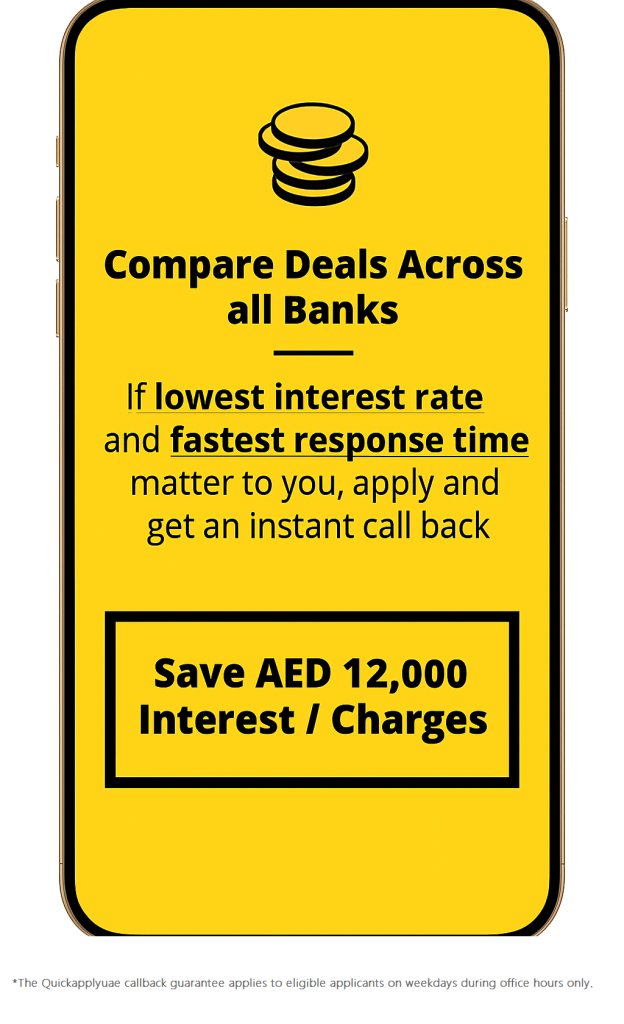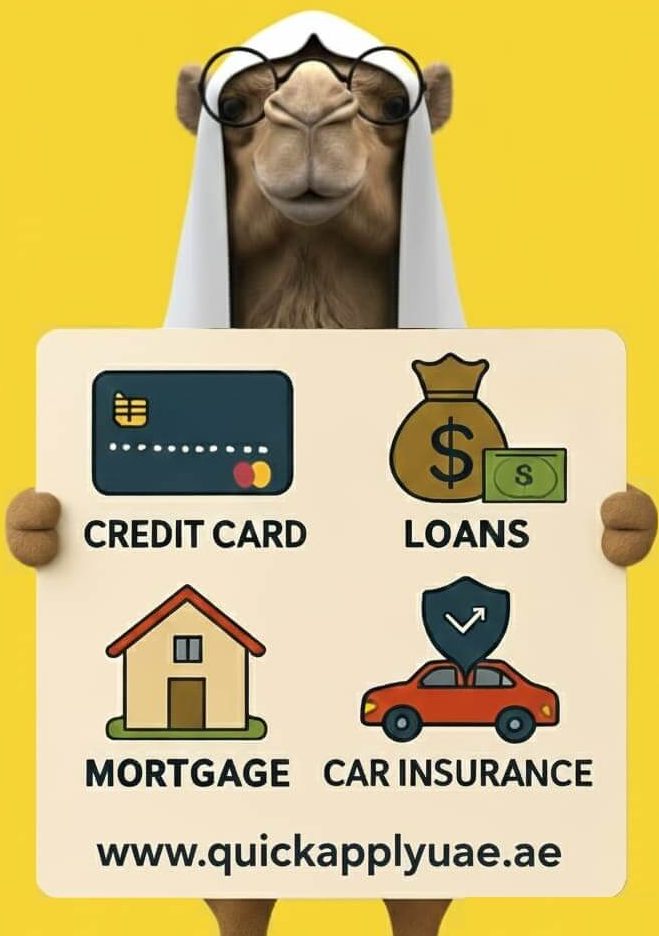Credit Card
Apply Credit Card with 20 Banks in UAE & Get 30 Minutes callback Guarantee

credit card in the UAE requires specific documentation for the bank to assess your creditworthiness and income stability. Having these documents ready is the key to a smooth and fast Credit Card approval process.
Here is a comprehensive checklist for Credit Card documents required.
Standard Documents for All Credit Card Applicants
These are required from everyone, regardless of employment status.
Completed Credit Card Application Form: Filled out and signed.
Passport Copy: Clear copy of the bio-data page and the page with the valid UAE residence visa.
UAE Emirates ID: Copy of both the front and back.
Additional Documents for Salaried Employees
This applies to individuals employed by a company.
Mandatory for All Salaried Employees:
Proof of Income:
Last 3 Months’ Salary Slips: Official slips from your employer.
Last 3-6 Months’ Bank Statements: Statements for the account where your salary is deposited. This is crucial for the bank to verify your salary credits and spending habits.
Salary Certificate: A recent letter (typically not older than 3 months) from your employer on company letterhead stating your:
Full Name
Position
Date of joining
Monthly gross salary (basic salary + all allowances)
Note: Some banks may also ask for an additional security or guarantor for specific high-limit premium cards, but this is less common.
Additional Documents for Self-Employed/Business Owners
Requirements are more extensive as banks need to verify the health and stability of your business.
Company Trade License Copy: Must be current and valid.
Company Bank Statements: Last 6 months’ statements for your business account.
Personal Bank Statements: Last 6 months’ statements for your personal account.
Audited Financial Statements: Company’s audited financial reports for the last 1-2 years.
Summary Table for Quick Reference
Employment Type | Required Documents |
Salaried Employees | 1. Application Form |
Self-Employed | 1. Application Form |
Crucial Tips for a Smooth Credit Card Application:
Validity: Ensure your passport, visa, and Emirates ID are valid. Expired documents will cause an immediate rejection or delay.
Clarity: Provide clear, scanned copies of all documents. Blurry or incomplete documents will slow down the verification process.
Accuracy: Double-check that your name, salary, and contact details are consistent across all documents and the application form.
Credit Score: Your Al Etihad Credit Report is crucial. A good credit score (history of paying loans/credit cards on time) is often more important than just a high salary for approval and getting a higher credit limit.
How to Simplify the Process:
Using a financial aggregator service like www.quickapplyuae.ae can streamline this process significantly:
Single Upload: You can upload your documents once on their platform to apply to multiple banks.
Expert Guidance: They can help ensure your application is complete and guide you toward cards you’re more likely to be approved for based on your profile.
Compare Offers: You can see and compare benefits, fees, and likely credit limits from different banks in one place.
Having these documents prepared before you start your application will significantly increase your chances of a quick and successful credit card approval.
What is a Credit Card?
A credit card is a thin rectangular piece of plastic or metal issued by a bank or financial institution that allows you to borrow money up to a pre-set limit to make purchases, pay for services, or get cash advances.
In simple terms, it’s a short-term lending tool. When you use a credit card, you are essentially spending the bank’s money with a promise to pay it back later.
How Does It Work?
Credit Limit:The bank approves you for a maximum amount you can borrow, known as your credit limit. This is based on your income, credit history, and other factors.
Making Purchases:You can use the card to pay for goods and services anywhere that accepts credit cards, both online and in physical stores.
Billing Cycle:Your transactions are grouped into a monthly billing cycle (usually 30 days).
Monthly Statement:At the end of each cycle, the bank sends you a statement detailing all your transactions, the total amount you owe, and the minimum payment
- Repayment:
- If you pay the full statement balance by the due date, you typically pay no interest on your purchases.
- If you pay only the minimum payment or any amount less than the full balance, you will be charged interest (also known as Finance Charges) on the remaining amount. This interest is how banks make money on credit cards.
Key Features & Terminology:
Cardholder:The person to whom the card is issued.
Issuing Bank:The financial institution that provides the card (e.g., Emirates NBD, ADCB, etc.).
Credit Limit:The maximum amount you can borrow.
Annual Percentage Rate (APR):The annualized interest rate charged on outstanding balances if you don’t pay in full.
Minimum Payment:The smallest amount you must pay by the due date to keep your account in good standing.
Billing Cycle:The period between credit card statements.
Due Date:The deadline for your payment to be received.
Benefits of Using a Credit Card:
Convenience:Safer and easier than carrying large amounts of cash.
Build Credit History:Responsible use (paying on time) helps you build a good credit score, which is crucial for getting larger loans like a mortgage or auto loan in the future.
Rewards and Perks:Many cards offer benefits like cashback, air miles, reward points, discounts at restaurants, and travel insurance.
Purchase Protection:Often provides insurance on purchases and protection against fraud.
Emergency Funds:Provides a financial cushion for unexpected expenses.
Important Considerations:
Debt Risk:It’s easy to accumulate debt that becomes difficult to repay due to high interest rates.
Fees:Cards can have annual fees, late payment fees, and foreign transaction fees.
Impact on Credit Score:Missing payments or maxing out your card can severely damage your credit score.
For someone in Dubai looking for a credit card, it’s crucial to compare options based on your spending habits to find a card with the best rewards, lowest fees, and most suitable credit limit. This is where a service like www.quickapplyuae.ae can help by allowing you to compare offers from multiple banks in one place.
The UAE market offers a wide variety of credit cards tailored to different lifestyles and spending habits. Here’s a breakdown of the common types of credit cards available:
Rewards Cards
These cards earn points for every dirham you spend, which can be redeemed for various goods and services.
Best for: Everyday spenders who want to get something back for their purchases.
Examples: Cards that offer points redeemable for shopping vouchers, electronics, gifts, etc.
Travel & Air Miles Cards
These are ideal for frequent flyers. They earn air miles (usually with specific airlines like Emirates Skywards or Etihad Guest) for every spend, which can be redeemed for flight tickets, upgrades, and airport lounge access.
Best for: Frequent travelers, expatriates who travel home often.
Key Features: Air miles, complimentary airport lounge access, travel insurance, discounts on hotels and flights.
Cashback Cards
These cards offer a simple, straightforward benefit: a percentage of your spending is returned to you as cashback, either monthly or annually.
Best for: Individuals who prefer direct savings over points and miles.
Key Features: Typically offers 1% to 5% cashback on specific categories like groceries, fuel, and international spending.
Low-Interest & Balance Transfer Cards
These cards offer a low Annual Percentage Rate (APR) or a promotional low rate for balance transfers. They are designed to help you save on interest charges.
Best for: Those who plan to carry a balance from month to month or want to consolidate debt from other high-interest cards.
Key Features: Lower interest rates on outstanding balances.
Premium / Luxury Cards
These are high-end cards, often made of metal, that come with exclusive benefits and a high annual fee.
Best for: High-net-worth individuals with significant spending power.
Key Features: Dedicated concierge service, high travel insurance limits, complimentary golf rounds, premium lounge access, status upgrades with hotels and airlines.
Secured Credit Cards
These cards require a cash security deposit, which typically becomes your credit limit. They are designed for individuals with no credit history or those looking to rebuild poor credit.
Best for: New residents, young adults, or anyone needing to build or repair their credit score.
Islamic Credit Cards
These are Sharia-compliant cards that avoid elements of interest (riba). Instead of charging interest, they may operate on a profit-rate or fee-based structure for late payments.
Best for: Customers seeking financial products that comply with Islamic principles.
Key Features: No interest charges, Takaful (Islamic insurance) coverage, and rewards that are Halal.
Student Credit Cards
Tailored for university students, these cards usually have lower credit limits and are easier to qualify for. They help young adults build their credit history.
Best for: University students with a limited income.
Business Credit Cards
Designed for business owners and entrepreneurs, these cards help separate business and personal expenses. They often offer rewards on business-related spending like office supplies, advertising, and travel.
Best for: Business owners, startups, and freelancers.
Key Features: Higher credit limits, detailed expense reports, rewards on business categories.
How to Choose the Right Type for You:
Consider your spending patterns:
Do you travel frequently? → A Travel/Miles Card is best.
Do you want simple savings? → A Cashback Card is ideal.
Do you spend a lot on dining and groceries? → Look for a Rewards Card with bonus points in those categories.
Do you carry a balance? → Prioritize a Low-Interest Card.
Pro Tip: Always compare the annual fee, interest rate (APR), and reward structure before applying. A service like www.quickapplyuae.ae is excellent for comparing these features across different UAE banks to find your perfect match.
Our Partners
QuickApplyUAE maintains strong and dynamic relationships with a comprehensive list of leading financial institutions in the UAE, including but not limited to:
Emirates NBD
First Abu Dhabi Bank (FAB)
Abu Dhabi Commercial Bank (ADCB)
Mashreq Bank
Commercial Bank of Dubai (CBD)
HSBC
Citibank
RAKBANK
Emirates Islamic Bank
These are the largest and most prominent financial institutions in the country.
Emirates NBD (Merger of Emirates Bank International and National Bank of Dubai)
First Abu Dhabi Bank (FAB) (Merger of National Bank of Abu Dhabi and First Gulf Bank)
Abu Dhabi Commercial Bank (ADCB) (Merger of ADCB and Union National Bank, and subsequent acquisition of Al Hilal Bank)
Dubai Islamic Bank (DIB) (The world’s first full-service Islamic bank)
Mashreq Bank
Commercial Bank of Dubai (CBD)
Abu Dhabi Islamic Bank (ADIB)
Emirates Islamic Bank
National Bank of Fujairah (NBF)
National Bank of Umm Al-Qaiwain (NBQ)
RAKBANK (The National Bank of Ras Al-Khaimah)
Sharjah Islamic Bank
Invest Bank
Commercial Bank International (CBI)
Local Investment Banks
Emirates Investment Bank
SHUAA Capital
Finance Companies in the UAE
Finance companies are crucial players, especially in the auto loan, personal finance, and SME lending sectors. They are often subsidiaries of major banks or independent entities.
Prominent Finance Companies include:
Abu Dhabi Finance (Specializes in mortgages)
Emirates Integrated Telecommunications Company (du) Finance (Provides payment solutions)
Finance House
Oasis Finance (Part of the Oasis Investment Company)
Amlak Finance (Specializes in real estate financing / mortgages)
Tamweel (A subsidiary of Dubai Islamic Bank, specializing in home finance)
Arab Financial Services (Provides payment solutions)
Mashreq Al Islami (The Islamic financing division of Mashreq Bank)
ETHOS (Emirates Transaction Services) (Operates UAESWITCH and provides payment infrastructure)
Personal Express Finance (PEF)
United Arab Bank – Finance Division (Offers various financing products)




